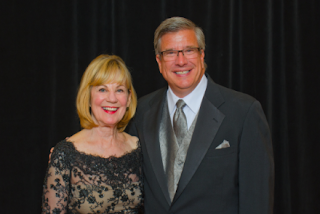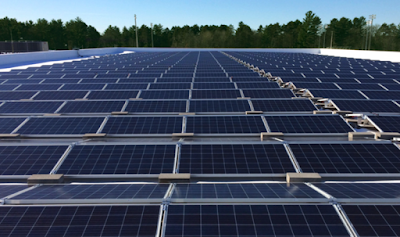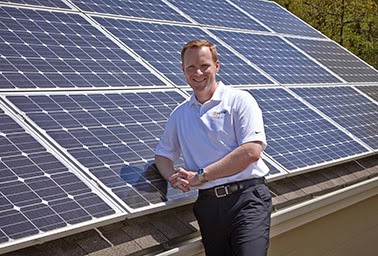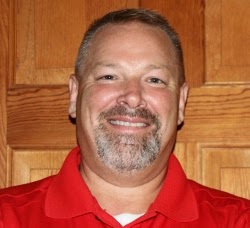
by jboullion | May 11, 2017 | Uncategorized
 |
Co-Chairs of the Wisconsin Legislature’s Joint Finance
Committee, Sen. Alberta Darling and Rep. John Nygren. |
Positive steps were taken today on two issues of importance for clean energy and Wisconsin power customers!
The State Legislature’s Joint Finance Committee met to set the budget of the Public Service Commission for 2017-2019, which includes both Focus on Energy and intervenor compensation funds.
Both of the wins described below gained 16-0 bipartisan votes by the Committee, which is made up of 12 Republicans and 4 Democrats.
First, the budget for intervenor compensation was partially restored after a 66% cut two years ago. The budget going forward will double to $742,500 annually. These funds enable nonprofit and citizen-based organizations to bring technical and legal expertise to proceedings at the Public Service Commission. RENEW Wisconsin has historically used this fund to support our advocacy in utility rate cases, power plant proposals, and numerous other proceedings at the PSC that impact renewable energy.
In addition, the Citizens Utility Board frequently uses this fund to bring expertise to cases in order to keep utility rates as low as possible for residential and small business customers across Wisconsin. Governor Walker had proposed this restoration of funds in his budget, and the Committee adopted it. This is great news, and we applaud Governor Walker and members of the Joint Finance Committee for adopting this provision.
Secondly, Focus on Energy’s budget will remain unchanged, allowing for the most cost-effective energy efficiency and renewables projects to be funded. The Governor has proposed to eliminate the ability for school districts to borrow above their revenue limit to fund energy efficiency and renewable energy improvements (commonly called “Act 32” projects). To backfill that change, the Governor proposed allocating an additional $10 million from Focus on Energy’s budget for schools above what they spent last year, which would have earmarked nearly $15 million out of the total $93 million for schools alone.
 |
Solar PV installation on Lakeland Union High School in Minocqua,
part of an energy improvement project funded under the “Act 32” school district
revenue exemption. See the full case study from SunPeak. |
|
Concerns had been raised that schools would not be able to use that much Focus on Energy funding. The proposed earmark could have siphoned funding away from private business installations in energy efficiency upgrades, leading to unspent dollars in the Focus on Energy program and a less cost-effective set of investments.
The Committee voted 16-0 against the Governor’s proposal, leaving the Focus on Energy budgets unchanged. This is very good news since the program returns over $3.50 for every dollar invested, and schools will still have ready access to incentives through existing programs.
This sets up an important vote later in the Joint Finance Committee schedule regarding the Governor’s proposal to repeal the Act 32 school district revenue exemption.
RENEW Wisconsin was supportive of both of these successful measures through our participation in the Customers First Coalition.
The biennial budget needs the approval of both the Assembly and the Senate before being signed by the Governor. Typically, the budget process lasts through June.
For more information on these topics and the state budget, please see RENEW’s Clean Energy Summary of Governor Walker’s Budget, and our recap of the 2015-17 state budget.
Finally, please support our work: become a member of RENEW Wisconsin today!

by jboullion | Aug 14, 2014 | Uncategorized
This article was published electronically August 14, 2014 in the Energy & Environment News Service and is re-printed here with permission from the reporter.
Evan Lehmann, E&E reporter
Four years ago, a Wisconsin Republican urged his party to overcome its fear of environmental action, saying that a conservative green movement could strengthen both the economy and GOP candidates. Then he got clobbered.
Now his son is taking a turn. Matt Neumann hopes to convince state officials that Wisconsin needs a big expansion of solar power. Among his audience are members of the Republican Party including friends of his father, former U.S. Rep. Mark Neumann, who was later defeated in back-to-back primaries, first for governor in 2010 and then for the Senate two years later.
The younger Neumann resembles his dad, a former math teacher, both in looks and in his conspicuous conservatism. They both promote the environment, and they hope to make money conserving it. They do have one big difference: “Politics drives me nuts,” Matt Neumann said.
Instead of running for public office, he’s making his energy pitch as president of the Wisconsin Solar Energy Industries Association and as the co-owner of a solar installation business that he runs with his father.
Matt Neumann, president of the Wisconsin Solar Energy Industries Association. Photo courtesy of the Wisconsin Solar Energy Industries Association
He enters public policy at a turbulent time. Wisconsin has seen its installation of solar systems drop since 2010, following eight years of modest growth. The state now has about 17 megawatts of installed solar power, enough to provide electricity to about 2,600 homes, according to Neumann’s group. That amounts to about 0.1 percent of the state’s renewable energy. In other words, it’s barely perceptible. [RENEW Wisconsin note: solar electricity accounts for less than 0.03% of Wisconsin’s electricity.]
The key reason behind Wisconsin’s sluggish growth is opposition by its utility sector, according to advocates of renewable energy. Utilities like We Energies, Wisconsin Public Service Corp. and Madison Gas and Electric Co. are pre-positioning themselves to avoid potential future losses from homegrown power, like solar arrays, by seeking fixed rates rather than charging customers for the amount of energy they use.
That can discourage conservation, clean energy advocates say, and it might dampen the economic impetus for installing solar on your rooftop: If a customer can’t lower his or her power bills by using solar electricity, then the investment doesn’t make sense, advocates say.
Neumann uses conservative touchstones to describe the state of things. For him, it’s a lack of “liberty” that prevents a property owner from choosing how to power his or her home or business. He said this absence of “energy choice” contradicts Republican tenets, which run strong in a state where the governor, Scott Walker, is favored by the tea party.
“We’re very conservative here in Wisconsin,” Neumann said. “The reality is free market capitalism, the choice to choose how you buy your energy, and how you finance that acquisition, the ability to lower your long-term energy costs — those are all very conservative principles and yet for some reason we’re struggling to adapt.”
Protecting customers, or profits?
Rate proposals currently being considered by the Wisconsin Public Service Commission would increase fixed monthly costs from $9 to $16 for customers of We Energies, the state’s biggest utility. Bigger jumps are being sought by Wisconsin Public Service Corp., which wants to double the fixed costs for residential customers to $25, and Madison Gas and Electric, which proposed a monthly fixed fee of $68 by 2017 before settling for $19 next year. That’s an 82 percent jump.
We Energies is also asking regulators to allow it to pay much less for electricity generated by homeowners, who can sell excess power derived from solar panels and other systems to utilities. The company is seeking to decrease the current price of 14 cents per kilowatt-hour to between 3 and 5 cents.
Cathy Schulze, a spokeswoman for We Energies, said the current price is above market rate, and the cost is passed on to other ratepayers. She also said the utility is moving to fixed prices to ensure that customers without solar aren’t required to shoulder more of the costs of maintaining the grid’s infrastructure — like poles, wires and utility employees.
“The costs are shifting to those people who don’t have their own generation right now,” Schulze said. “It may not be as big of a problem right now, but as that [solar] industry continues to grow, you’re going to see that disparity and that cost grow wider.”
Others see it differently. Tyler Huebner, executive director of RENEW Wisconsin, which advocates for cleaner power, said that the utilities are trying to cover recent investments in coal and gas plants with higher fixed fees. Customers shouldn’t be tied to the cost of those plants, he said, if they find cheaper, cleaner power alternatives.
If the buyback rate for excess solar power drops from 14 cents to 4 cents, it would price solar systems out of the marketplace, he said. “That’s the concern,” Huebner said.
Neumann said solar could thrive in Wisconsin if lawmakers would clarify that third-party ownership of solar systems is allowed. His company is an example. SunVest Solar Inc. installs its own photovoltaic systems on homes, businesses and churches, and then sells the power to the property owner at a fixed rate over 20 years.
The rate is usually equivalent to the cost of conventional electricity, or lower, Neumann said, and it can expand the use of solar power because property owners don’t have to buy the equipment, which can cost up to $15,000 installed for a home.
On climate change: ‘I don’t know’
He’s hopeful that Wisconsin lawmakers will pass legislation allowing third-party financing. But he said the “big thing” that Republicans will have to overcome is the utilities’ argument that solar could increase the cost of electricity on those customers who don’t have it.
“It’s just plain not true,” Neumann said, noting that solar power cuts cost on utilities and customers by generating power at peak demand periods.
But the utilities seem to have the ear of lawmakers. State Sen. Robert Cowles, a Republican and chairman of the Energy, Consumer Protection and Government Reform Committee, said the idea that solar could shift the cost burden to other people is “pretty compelling.”
“I can tell you, the utilities are vehemently against this,” Cowles said of third-party ownership. “I’m not sure how we would get them to ever accept that. We would have to overwhelm them somehow. I mean, I’m not taking a position on this right now.”
Neumann, like his dad, is a conspicuous member of the Republican Party. As he emphasizes renewable energy, his party avoids it. The state GOP’s platform, adopted this year, doesn’t prioritize cleaner energy, or even mention it. Instead, the document promotes eliminating the Department of Energy and encourages environmental stewardship based on technology rather than “unnecessary government regulation.”
Neumann’s father, favored by some tea party groups during the primary for governor in 2010, pushed his party to expand its reach with young voters and others “put out from the Republican Party,” by mixing environmentalism into the GOP’s economic messaging. Among the ideas that Mark Neumann introduced in 2010 was a job-friendly plan to reduce carbon emissions.
“When I talk about the environment, that’s an issue people have been afraid to talk about on our side of the aisle,” he said at the time, seated beside future Gov. Scott Walker, a conservative Republican.
Neumann lost badly in the primary several months later as Walker sailed away with a 20-point victory.
For his part, Matt Neumann may stray from his party’s bosom, but he doesn’t abandon it. He looks at environmentalism through a lens of commerce. Pursuing it can enhance economic activity and provide jobs, he seems to say, but it’s unclear if environmentalism is an exclusive priority for him without the fiscal hangers-on.
He also treads carefully when asked about climate change. He declined to say if it’s occurring, something that might perhaps give him credibility when talking to conservatives about renewable energy.
“I don’t know on climate change,” Matt Neumann said. “I have no idea. I would have to study it a lot more — and probably should, given the industry we’re in.”
“I’m being totally honest with you — I just plain don’t know.”
Want to read more stories like this?
Click here to start a free trial to E&E — the best way to track policy and markets.
by jboullion | Jul 21, 2014 | Uncategorized
Based on a July 18, 2014 article by Chuck Quirmbach on Wisconsin Public Radio
The Alliance for Solar Choice, a solar industry trade group, has scorned three Wisconsin utility’s attempts to harm solar companies through their respective proposed rate restructuring. All three rate proposals include a planned increase in customer’s fixed charges, while offering a small decrease in the price of energy use per kWh.
The Alliance for Solar Choice represents many members of the rooftop solar industry and believes that We Energies’ (along with WPS and MGE) plan would stop customers from having installers lease them solar panels. Alliance president Bryan Miller believes that utilities are adopting the philosophy of “if you can’t stop it, monopolize it” by assuring that rooftop solar is more economical through the utility. We Energies has also unveiled a solar panel leasing ban, further adding to the calamity felt by solar contractors. The utility waited to propose this ban after the deadline for groups to formally intervene in the rate case before the Public Service Commission, the entity that would review the proposal. According to Miller, “the way they did this shows you really what the character of this company is about.”
We Energies spokesperson Cathy Schultze said her company followed standard procedures for rate cases, stating that “the same amount of time that usually transpires went down in this case.” Further, Schultze stated that the increase in fixed charges is fairer to customers who can’t afford or don’t want solar panels, a surprising statement considering that the 1,450 MW of residential solar installations across the country since 2000 have been overwhelmingly occurring in middle-class neighborhoods that have medium incomes ranging from $40,000 to $90,000 (read the Center of American Progress report here).
Read the entire article here

by jboullion | Jul 8, 2014 | Uncategorized
RENEW Wisconsin members re-elected four directors to its governing board in June.
“We are thrilled that these four re-elected board members will continue to serve RENEW Wisconsin as we collectively work towards our newly adopted mission to lead and accelerate the transformation to Wisconsin’s renewable energy future through advocacy education, and collaboration,” said Carl Siegrist, RENEW’s board president.
The four Directors are:
 Brian Hildebrand, administrator with the UW-Madison Center for Sustainability and the Global Environment as well as with the Center for Climatic Research.
Brian Hildebrand, administrator with the UW-Madison Center for Sustainability and the Global Environment as well as with the Center for Climatic Research.

Niels Wolter, is an independent consultant working with prospective owners of large commercial solar electric systems and is the Managing Director of Encon Services International LLC.
 Greg Fritsch, President of Clean Energy North America, a bioenergy and cogeneration project development and consulting company. Greg has been involved in banking, consulting, and energy project development for 25 years.
Greg Fritsch, President of Clean Energy North America, a bioenergy and cogeneration project development and consulting company. Greg has been involved in banking, consulting, and energy project development for 25 years.
 Don Wichert, volunteer advisor to RENEW Wisconsin and independent consultant with Eudai Energy, LLC. Don has been involved with renewable energy in Wisconsin for over 30 years with the State Energy Office, Wisconsin Energy Conservation Corporation, and RENEW Wisconsin as Board Member and interim Executive Director.
Don Wichert, volunteer advisor to RENEW Wisconsin and independent consultant with Eudai Energy, LLC. Don has been involved with renewable energy in Wisconsin for over 30 years with the State Energy Office, Wisconsin Energy Conservation Corporation, and RENEW Wisconsin as Board Member and interim Executive Director.
These directors will serve three-year terms starting in July 2014 and going through June 2017.
by jboullion | Jun 13, 2014 | Uncategorized
RENEW Executive Director, Tyler Huebner was interviewed by Tom Breuer for the May issue of InBusiness Magazine
“If you’ve managed to survive even one brutal Wisconsin winter (or unseasonably hot summer), you know that looming utility bills can often creep into your daydreams and nightmares on a moment’s notice, eating away at your peace of mind well before they have your kids’ college fund for lunch.
If you’re a small business owner who pays his or her own heat or electricity, you’ve got double trouble, and in addition to unpredictable weather, unforeseen rate increases can be the difference between shivering in the dark and avoiding a deep freeze.
So imagine if your utility bills ran into the hundreds of thousands every month instead of the hundreds. Well, there are plenty of Wisconsin ratepayers — big manufacturers and other commercial energy consumers — who don’t have to imagine. They live that reality. And they are skittish about a recent proposal to beef up Wisconsin’s renewable energy mandate from its current 10% threshold to 20% by 2020 and 30% by 2030 — a move that, many believe, would spike energy prices that are already high in comparison to other states.”
Read the rest of the article...








